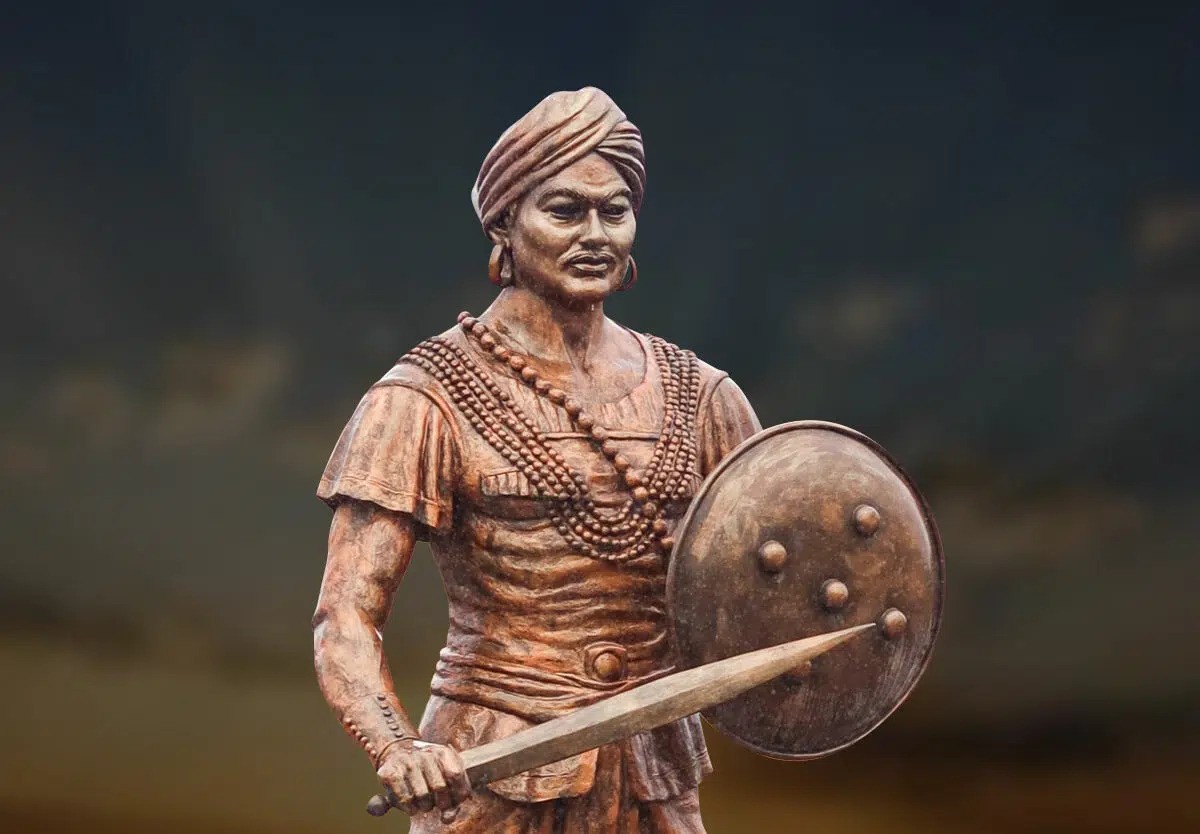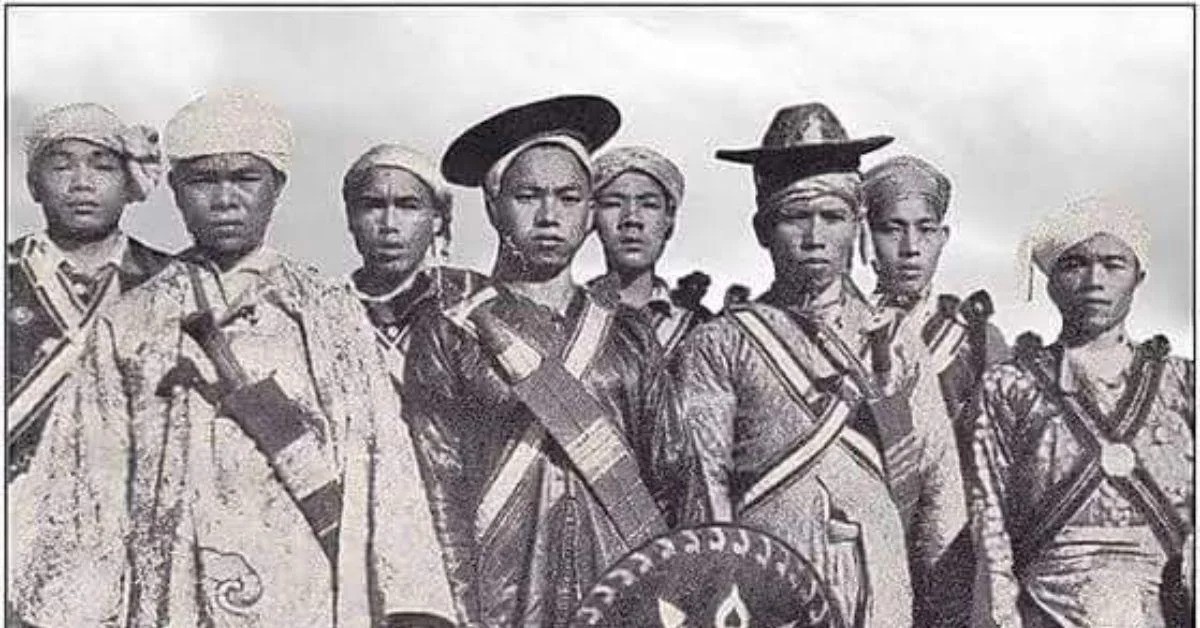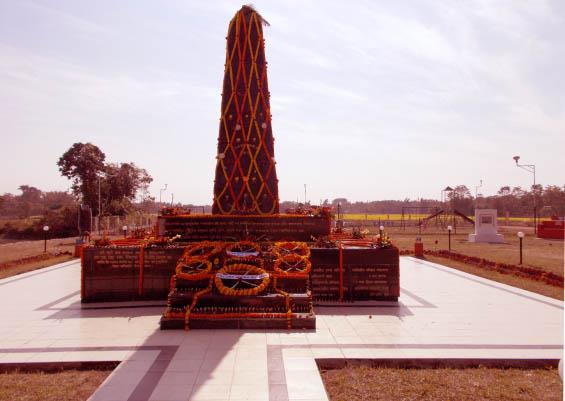By Dr. Bhupendra Kumar Sullere
When we examine the role of tribal societies in India’s freedom struggle, the Khasi community of Northeast India emerges as a glorious chapter. At the center of this narrative stands U Tirot Sing Syiem, who not only challenged British imperialism but sacrificed his life for the protection of janjati self-respect and cultural sovereignty. He was among the first Janjati warriors in India to begin armed resistance against the British as early as the 1830s.
Introduction to the Khasi janjati:
The Khasi are one of the major tribes of the Indian state of Meghalaya. The society is matrilineal — lineage, inheritance, and identity pass through the mother. The Khasi culture is deeply rooted in environmental conservation, self-governance, and communal life.
Governance Structure:
In Khasi society, a ruler is called a Syiem, elected through community consensus rather than heredity.
Each Syiem governs a limited region and works in coordination with traditional village councils.
Tirot Sing: The Guardian of Khasi Swaraj
Early Life: Born: Around 1802, in the Khasi Hills of Meghalaya. Known for his sense of justice and leadership qualities from childhood. Appointed as the Syiem of Nongkhlaw, a principality in present-day West Khasi Hills.
Leadership Characteristics:
People-centric decisions, foresight, and courage. Initially open to British proposals for development, but turned hostile when Khasi autonomy was undermined.
British Interference and the Background of Conflict
The British Plan:
The East India Company planned a road connecting Bengal to Assam, cutting through the Khasi Hills. Tirot Sing granted permission with the condition that Khasi sovereignty would be respected.
Betrayal and Discontent:
British authorities ignored the conditions and began building military outposts. Tirot Sing protested, issued warnings, and finally initiated resistance when ignored. The Revolt of 1829: The Flame of Khasi Independence
Beginning of the Revolt:
In 1829, Tirot Sing attacked a British outpost, killing several soldiers. This marked the beginning of organized resistance by the Khasi against British forces.
Guerrilla Warfare Strategy:
Khasi warriors used their geographical advantage, fighting in hills, forests, and gorges. The British faced months of severe difficulty and losses.
Betrayal, Capture, and Martyrdom
The Betrayal: In 1833, a local traitor helped the British capture Tirot Sing by deceit. He was sent to Dhaka Jail (present-day Bangladesh), where he died on July 17, 1835.
Death Becomes Immortality:
His death became a saga of sacrifice for the Khasi people. His struggle turned into a symbol of janjati self-respect and sovereignty.
Cultural Memory and Legacy
“U Tirot Sing Day”: July 17 is observed as “Tirot Sing Day” in Meghalaya. Schools, cultural institutions, and public platforms organize events in his memory.
Presence in Folk Memory:
His life story lives on in Khasi folk songs, plays, and oral traditions. He is hailed as a “Cultural Commander” of the Khasi identity.
Relevance of Tirot Sing in the National Discourse
Janjati Perspective of the Freedom Struggle: Mainstream history often marginalizes Janjati contributions. Tirot Sing represents the diverse regional streams of India's freedom movement.
Contemporary Significance:
His resistance shows that so-called “development” that violates autonomy is colonial exploitation. In present-day debates on Janjati identity, forest rights, and constitutional protections, Tirot Sing remains a vital inspiration.
U Tirot Sing was a blazing torch of India’s freedom struggle that rose from the hills and reminded the entire nation that culture, dignity, and sovereignty transcend geographical boundaries. His life is a declaration of tribal self-determination.
As India revisits its real nation-builders, Tirot Sing’s legacy teaches us the powerful triad of development, self-respect, and resistance.
References / Suggested Reading:
1. Verrier Elwin – The Tribal World of Verrier Elwin
2. David R. Syiemlieh – They Dared to Defy: The Tribes of Northeast in India's Freedom Struggle
3. Archives of the Government of Meghalaya
4. Khasi Folk Culture Center, Shillong
5. Official Portal of the Government of Meghalaya on Tirot Sing






